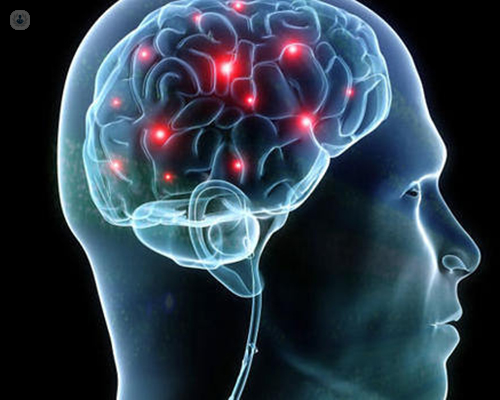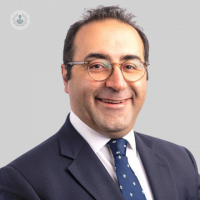Is a vestibular schwannoma a brain tumour?
Written in association with:Top Doctors recently spoke with distinguished London-based consultant neurosurgeon, Mr Alireza Shoakazemi, who, in this informative article, explains what a vestibular schwannoma is, reveals what the most common signs and symptoms of a vestibular schwannoma are, and tells us what typically causes these non-cancerous brain tumours to appear.

What is a vestibular schwannoma? Is it a brain tumour?
Vestibular schwannoma is a non-cancerous and benign brain tumour which commonly arises from hearing and balance nerves. This tumour is also known as an acoustic neuroma. This tumour is slow-growing and does not normally spread to other parts of the body.
What causes vestibular schwannomas?
Commonly, there is no cause or a confirmed predisposing factor for vestibular schwannoma. In a very small fraction of patients, this tumour can occur in the context of a genetic condition called neurofibromatosis type 2. When this tumour is detected in this context, there are other findings in investigation as well. The patient will then be referred to a genetic specialist.
What are the signs and symptoms of a vestibular schwannoma?
In some patients, this tumour is found incidentally in a scan which was performed for other reasons. Common symptoms which are seen in vestibular schwannoma, irrespective of the size of the tumour, include hearing loss in one ear, tinnitus (buzzing sound in ear), as well as vertigo (sensation of room spinning).
When the tumour grows to a larger size and causes pressure on adjacent structures, it can cause headaches, double vision, facial numbness, balance problems and, occasionally, swallowing difficulties, hoarse voice, and facial weakness.
Are vestibular schwannomas treatable? What is the best treatment option?
When a vestibular schwannoma is diagnosed, depending on the size of the tumour as well as the symptoms, your neurosurgeon will decide if an active monitoring is an option for you. If this is deemed to be suitable, further MRI scans will be arranged in a few months’ time to assess if the tumour shows any growth.
A small percentage of vestibular schwannomas do not grow over time. If they are small in size, an active monitoring can be continued. If the tumour is large when diagnosed or causing symptoms because of pressure on brainstem or adjacent structures, a surgical intervention can be carried out.
There are various different surgical approaches for vestibular schwannoma which your neurosurgeon will decide according to scan findings. Small vestibular schwannomas or a remnant after a surgical intervention can sometimes be treated with stereotactic radiosurgery.
What is the survival rate for vestibular schwannomas?
Vestibular schwannomas can, unfortunately, sometimes recur in patients who were treated with surgery or stereotactic radiosurgery. In this case, further treatment may be required. Considering the benign nature of these tumours, if they are controlled early, they should not have an adverse effect on survival rate.
Mr Alireza Shoakazemi is a highly esteemed consultant neurosurgeon who specialises in many types of different brain tumours. Consult with him today via his Top Doctors profile to book a consultation with him.


